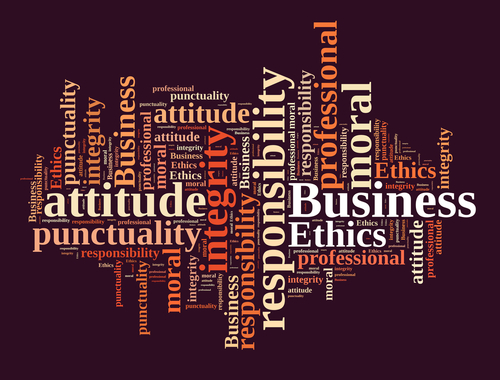
With great corporate power comes great corporate responsibility—or so we hope. While many companies are proactively weaving ethics into the foundation of their business, there are many who struggle to uphold integrity and remain accountable for their actions in the corporate world. According to a June 2015 Gallup poll, a mere 9% of the American public says they trust big business “a great deal,” up from 6% in June 2009.
To explore best practices and the challenges inherent in business ethics and ethics education, Bentley’s Alliance for Ethics and Social Responsibility in coordination with the Center for Business Ethics recently presented the 2016 Global Business Ethics Symposium.
“On the topic of ethics, we believe all universities should work to ensure that the next generation of organizational leaders leave college understanding the ‘whys’ and ‘how’s’ of ethical decision-making,” says Bentley President Gloria Larson.
“Today, the Bentley Alliance for Ethics and Social Responsibility serves as an umbrella for more than 20 campus organizations that share resources and ideas to encourage greater internal and external engagement around these important issues, including today’s program.”
Aligning Ethics and Education
Sponsored by the State Street Foundation, this year’s symposium theme focused on “Reflections on Business Ethics.” More than 20 international experts came together for in-depth discussions of current practices and challenges in business ethics, corporate responsibility and sustainability.
Key takeaways included:
- Explore current practices in other institutions, countries and cultures. Find companies whose actions you respect and learn by their example. Better understand the impact of new laws and regulations on how corporations act.
- Identify specific methods and programs to bring issues of ethics and corporate responsibility to light whether it is within business education curricula or by reaching out to the corporate community.
- Employ principles for responsible management education (PRME) in the classroom and bring the classroom to practitioners more often.
- Broadcast notions of ethics throughout the academic and practitioner worlds and make ethics a personal and professional habit, as well as a strategy.
Thinking Ahead
Chief Ethics Officer for State Street Anthony O’Reilly urged everyone to continue to think progressively when it comes to ethics and corporate responsibility.
“Many people still view compliance and ethics as an obstacle that gets in the way of doing business as opposed to a way of helping to align the values of an organization with business decisions,” said O’Reilly. “We must continue to build programming around ethics, not only for students who will become the business leaders of tomorrow, but also for current professionals and practitioners in the corporate world.”
There is no question that stakeholders are demanding more responsive and responsible performance directly from the corporate community – a renewed focus on responsibility and accountability that will hopefully be rooted in universally shared values. Ethics matter to the consumer and should deeply matter to industry if they want to turn a profit.
Learn more about how companies and colleges are embracing business ethics.
About the State Street Foundation
Established in 1977, the State Street Foundation is the charitable grant-making arm of State Street Corporation. The Foundation is dedicated to enriching the communities in which State Street lives and works through contributions to charitable organizations and by supporting causes. Specifically, the Foundation administers the funds for strategic grant-making, matching gifts, disaster relief emergency assistance, and the workplace Global Giving Campaign. Headquartered in Boston, the Foundation has 38 community support program committees in 25 countries responsible for establishing programs and managing relationships with local recipient organizations.
About the Bentley Alliance for Ethics and Social Responsibility (BAESR).
The purpose of the BAESR is to amplify and extend the work of the autonomous Centers and initiatives on campus, supporting and encouraging greater awareness of, respect for, and commitment to ethics, service, social responsibility and sustainability in our research, curricula and campus culture. The BAESR is directed by Cynthia E. Clark, Ph.D.

